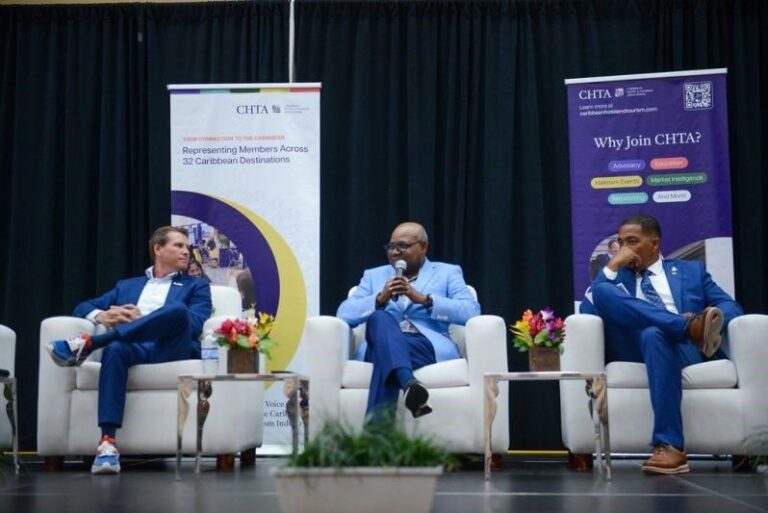(Trinidad Guardian) Jamaica’s Tourism Minister, Edmund Bartlett, has rejected the belief held by some that all tourism jobs are low-paid.
Bartlett made the point during a panel discussion titled “Integrated Tourism Development in the Caribbean Hotel and Tourism Association Travel Market,” held at the Montego Bay Convention Centre in Jamaica last month.
The minister said training programs have been introduced to give workers the qualifications they need to earn higher salaries.
“The aim of helping to change the labour market in tourism is that it is seen as a low-wage, highly mobile industry. Workers don’t see a career path in tourism, so they don’t have a sense of commitment to a career path. But that’s the tourism of the past, and we in the Caribbean know that,” Bartlett said.
“We’re not a seasonal tourist business anymore. We’re not six months off, six months on. We’re now open 24/7, so we have to develop and train people who can provide service 24/7, do it well and add value at every step,” he added.
Speaking on the value that tourism brings to the country, the Minister said while capitalism is the engine of economic prosperity, workers are a key asset for the industry’s growth.
“Tourism is about people, it is people who drive the energy of tourism, therefore tourism’s primary concern must be the workers in the tourism industry,” he stressed.
Bartlett stressed that ensuring good working conditions in the tourism sector is not just the responsibility of the public or private sector.
“Achieving the best working environment is a collective responsibility we must all share. It leads to high productivity, great business results and, most importantly, exceptional service that defines the experience that visitors come to our facility for,” he said.
The Minister noted that 60% of the value of the visitor experience is services and an environment in which people can grow and thrive must be provided.
Adam Stewart, chairman of Sandals and Beaches Resorts, also spoke on the panel, saying the tourism industry in the region is sophisticated and complex.
“This is something you can’t take too much risk on and it requires deep experience in it,” Stewart said.
He further noted that unity and continued dialogue between public and private sector actors in the region is needed to effectively address key issues.
“I think our problems are relatively easy to solve. None of it is rocket science. But we have to start by understanding each other’s limitations — what are the limitations of government, what can and can’t be done, what are the limitations of the private sector,” Stewart explained.
He said the two sectors needed to work together to develop tourism and infrastructure that would bring wealth to the economy and its people.
The third panelist, Kenneth Bryan, Minister of Tourism and Ports of the Cayman Islands and Chairman of the Caribbean Tourism Organisation (CTO), said technologies such as artificial intelligence are essential to comprehensive tourism development.
“Now it’s time for us to embrace it and figure out how to use it.”
He added that in future technology will create greater efficiency and allow labour to be transferred to other sectors.

